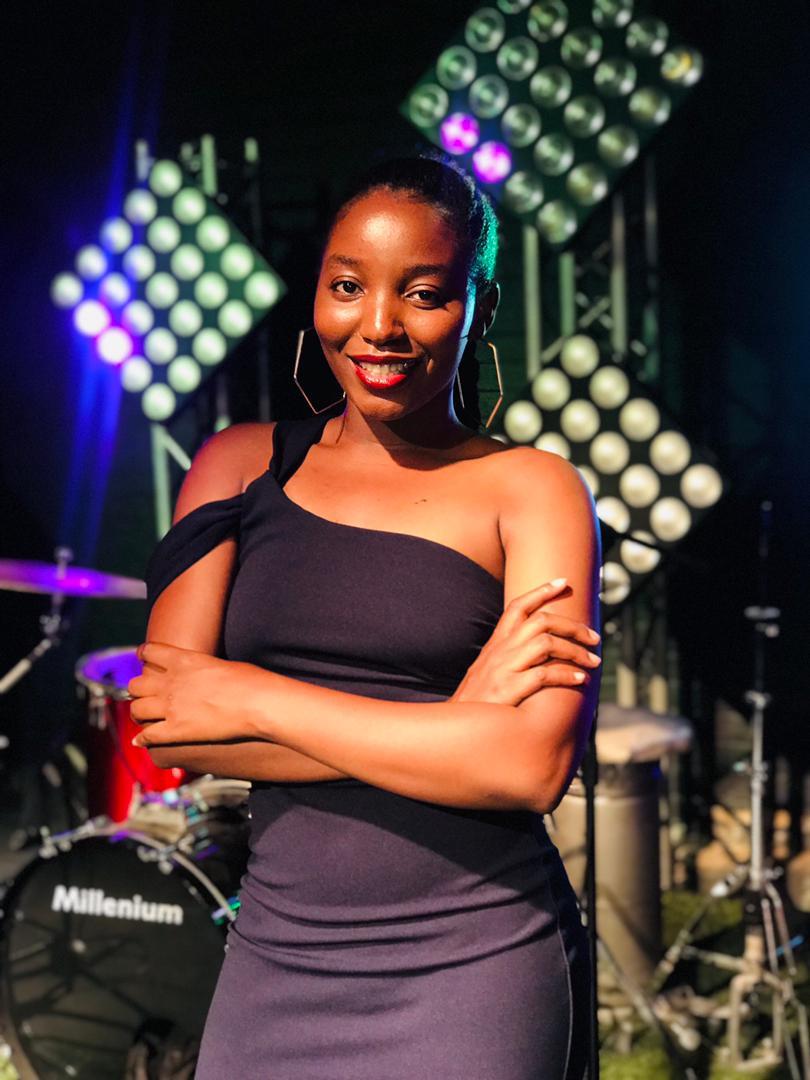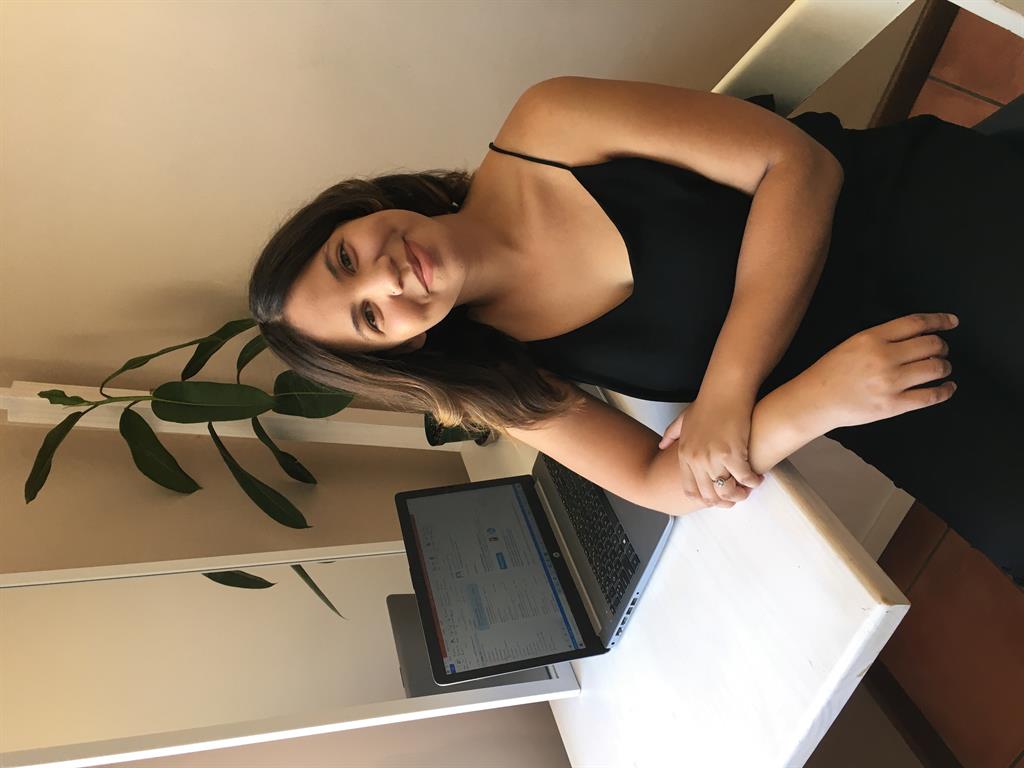Creating a countrywide audience
About a year ago, Namibia Media Holdings (NMH) started sending out journalists to report from different parts of the country.
Monique Adams
NMH takes its representation in Namibia’s regions seriously, to cover local news but also to be a voice for residents living in those towns.
“It is vital the residents know we are there, that we are visible and that they can contact us to share their stories. We are there to serve them and to take what they have to share to a countrywide audience,” says Gerine Hoff, the coordinator of the regional journalists.
Kenya Kambowe is based at Rundu in the Kavango East region, providing coverage all the way from Nkurenkuru to Katima Mulilo.
Tunohole Mungaba and Tuyeimo Haidula cover the Oshana region and up to the Angolan border.
Enzo Amuele provides coverage in the Kunene region.
Elvira Hattingh, who is based at Grootfontein, mainly covers the Otjozondjupa region, especially the farming communities in the Maize Triangle.
Elizabeth Joseph is based at Keetmanshoop covers the //Karas region. In January, Joseph will be replaced by Monique Adams.
NMH also has a strong presence in the Erongo region, with an office in Swakopmund and correspondents in Walvis Bay who together cover the towns of Arandis, Usakos, Karibib, Omaruru and Uis.
“The reality is that news really happens countrywide and that it is essential to share what is happening in our vast country. Indigenous languages are important to NMH and that is why some of our programmes are recorded and broadcast in different languages with subtitles,” Hoff said.
Hoff said that NMH would love to add more correspondents, for them to gain experience of news gathering and sharing from all corners of the country.
“In terms of broadcasts and programmes, there are more plans in the pipeline, although it is early stages and I don’t want to let the cat out of the bag just yet,” Hoff said.
Sharing their experience
Elizabeth Joseph, southern correspondent
1. What was it like being an NMH correspondent?
Honestly, a roller-coaster, to say the least. Not only was there a sea of opportunity and growth but also a magnitude of hardships and challenges. Being thrown into the deep end felt good because that meant that the company trusted me enough and thought I had what it took to expand the brand.
2. Mention a challenge you faced and how you overcame it.
Networking. I overcame this through persistently forcing myself onto tables that I thought were too big for me and into circles that would later help me enlarge my territory.
3. Mention a highlight of your time spending there.
My highlight has to be spearheading the first solo project of my career, the Suiderland regional suppplement. Through this, I met amazing people with beautiful stories and realised that even if you think you’ve heard it all, you haven’t.
4. What is one thing you have learned about yourself during your time there?
That I am extremely strong and resilient. I don’t take no for an answer and I am innovative when I need to be.
5. Would you do it again?
Absolutely. I’ve grown so much over the last year and I would never trade it for anything in the world.
Ester Kamati, north-eastern correspondent:
1. What was it like being an NMH correspondent?
It was quite the experience for me personally because I had never lived away from home, but also a chance to grow professionally. Being in a new environment forces you to embrace your adaptation skills and focus on mastering your new environment. You also need to adopt different methods of engagement with the community around you and the challenge was something I grabbed with both hands because as clichéd as it sounds, no growth happens in the comfort zone.
2. Mention a challenge you faced and how you overcame it.
For me, the biggest challenge was adjusting to a different social setting. As an introvert, I had to step out of my comfort zone and polish up on my networking to ensure that I have a valuable network of people who would be impactful in assisting me to reach my goals while I'm there.
3. Mention a highlight of your time spending there.
I definitely enjoyed being in a position to tell stories that would otherwise not have been heard. I love that with the power of a pen, I was able to impact the lives of the people in my new community and that they trusted me enough to tell their stories.
4. What is one thing you have learned about yourself during your time there?
I learnt that sometimes, you need to rely on yourself. Being in a remote office, there was very little engagement with my colleagues and I've learnt that working independently gives you a push to pursue and complete certain jobs because you are the only one there that can complete the task from where you are and trust your own ideas as there wasn't always someone for you to bounce ideas off.
NMH takes its representation in Namibia’s regions seriously, to cover local news but also to be a voice for residents living in those towns.
“It is vital the residents know we are there, that we are visible and that they can contact us to share their stories. We are there to serve them and to take what they have to share to a countrywide audience,” says Gerine Hoff, the coordinator of the regional journalists.
Kenya Kambowe is based at Rundu in the Kavango East region, providing coverage all the way from Nkurenkuru to Katima Mulilo.
Tunohole Mungaba and Tuyeimo Haidula cover the Oshana region and up to the Angolan border.
Enzo Amuele provides coverage in the Kunene region.
Elvira Hattingh, who is based at Grootfontein, mainly covers the Otjozondjupa region, especially the farming communities in the Maize Triangle.
Elizabeth Joseph is based at Keetmanshoop covers the //Karas region. In January, Joseph will be replaced by Monique Adams.
NMH also has a strong presence in the Erongo region, with an office in Swakopmund and correspondents in Walvis Bay who together cover the towns of Arandis, Usakos, Karibib, Omaruru and Uis.
“The reality is that news really happens countrywide and that it is essential to share what is happening in our vast country. Indigenous languages are important to NMH and that is why some of our programmes are recorded and broadcast in different languages with subtitles,” Hoff said.
Hoff said that NMH would love to add more correspondents, for them to gain experience of news gathering and sharing from all corners of the country.
“In terms of broadcasts and programmes, there are more plans in the pipeline, although it is early stages and I don’t want to let the cat out of the bag just yet,” Hoff said.
Sharing their experience
Elizabeth Joseph, southern correspondent
1. What was it like being an NMH correspondent?
Honestly, a roller-coaster, to say the least. Not only was there a sea of opportunity and growth but also a magnitude of hardships and challenges. Being thrown into the deep end felt good because that meant that the company trusted me enough and thought I had what it took to expand the brand.
2. Mention a challenge you faced and how you overcame it.
Networking. I overcame this through persistently forcing myself onto tables that I thought were too big for me and into circles that would later help me enlarge my territory.
3. Mention a highlight of your time spending there.
My highlight has to be spearheading the first solo project of my career, the Suiderland regional suppplement. Through this, I met amazing people with beautiful stories and realised that even if you think you’ve heard it all, you haven’t.
4. What is one thing you have learned about yourself during your time there?
That I am extremely strong and resilient. I don’t take no for an answer and I am innovative when I need to be.
5. Would you do it again?
Absolutely. I’ve grown so much over the last year and I would never trade it for anything in the world.
Ester Kamati, north-eastern correspondent:
1. What was it like being an NMH correspondent?
It was quite the experience for me personally because I had never lived away from home, but also a chance to grow professionally. Being in a new environment forces you to embrace your adaptation skills and focus on mastering your new environment. You also need to adopt different methods of engagement with the community around you and the challenge was something I grabbed with both hands because as clichéd as it sounds, no growth happens in the comfort zone.
2. Mention a challenge you faced and how you overcame it.
For me, the biggest challenge was adjusting to a different social setting. As an introvert, I had to step out of my comfort zone and polish up on my networking to ensure that I have a valuable network of people who would be impactful in assisting me to reach my goals while I'm there.
3. Mention a highlight of your time spending there.
I definitely enjoyed being in a position to tell stories that would otherwise not have been heard. I love that with the power of a pen, I was able to impact the lives of the people in my new community and that they trusted me enough to tell their stories.
4. What is one thing you have learned about yourself during your time there?
I learnt that sometimes, you need to rely on yourself. Being in a remote office, there was very little engagement with my colleagues and I've learnt that working independently gives you a push to pursue and complete certain jobs because you are the only one there that can complete the task from where you are and trust your own ideas as there wasn't always someone for you to bounce ideas off.






Comments
Namibian Sun
No comments have been left on this article